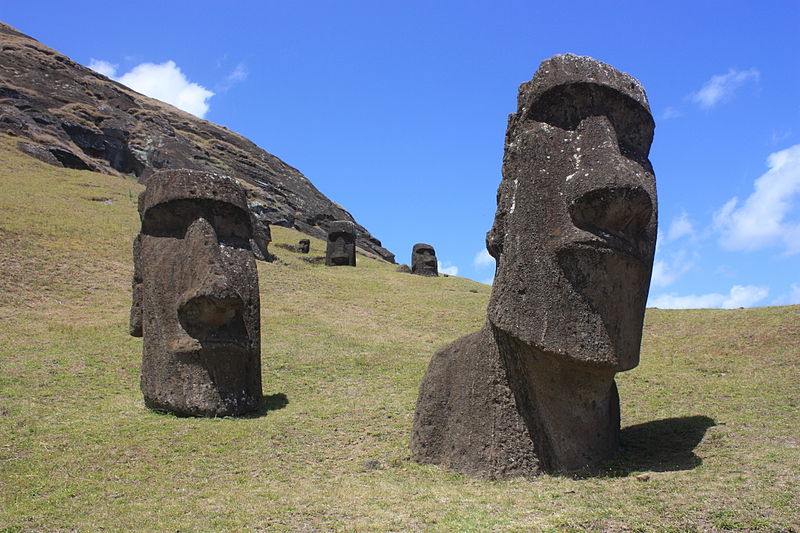Recently in my political science class, we had a discussion about George Stewart’s science fiction classic, Earth Abides. In the book, an unknown disease wipes out nearly the entire human population, and the survivors are tasked with rebuilding a civilization. It’s essentially The Stand, but roughly five times shorter. While the book is at times hilariously anachronistic, it still brings up some very interesting points about government, human relationships, and technology.
In this book, the characters eventually give up their literacy. Reading becomes unnecessary, as the survivors and their children focus more on hunting and maintaining their shelters and less on reading and writing. In their small group of 30-odd people, they are able to communicate with everyone without writing. Their civilization slowly regresses to resemble a hunter-gatherer society, and the citizens let go of their literacy.
To some students, this was the saddest part of the entire novel. One boy bemoaned the fact that the small society “got dumber” and would not be able to rebuild civilization. He said that the moment the band of survivors became doomed was the moment they gave up their literacy. A girl in my class expressed sadness that the characters would lose their history and traditions without writing. “How will they create anything that lasts beyond themselves?” she asked.
This dismissal of a non-literate society was surprising to me. Why are we so quick to write off pre-literate and non-literate societies? The discussion in my political science class sounded an awful lot like “The Great Divide” debates in literacy studies. My classmates echoed a lot of points made by the strong text theorists – scholars such as Jack Goody, Ian Watt, and Walter Ong. These scholars argue that, ultimately, writing makes societies smarter. It allows them to record history, create rules and laws, and come up with more scientific, complex ideas. Ong goes so far as to argue that writing changes the very way that humans think.
There are a few problems with this theory, though. How can Ong, a literate, educated man, possibly know how non-literate individuals think? He’s making very large assumptions about very large groups of people. Some scholars have pointed out that there’s no actual proof that writing makes us smarter. At best, Goody, Watt, and Ong are conflating the effects of organized schooling with literacy; at worst they are making eerily racist assumptions about non-literate societies.
It’s dangerous to write off non-literate and pre-literate societies. These cultures are often just as sophisticated as literate, western societies – certain Native American groups still have complex oral traditions of history and religion. Other preliterate societies have been able to create lasting works of art that are still revered today – the Easter Island statues and Stonehenge are still pinnacles of human achievement, and they were created by pre-literate societies. Literacy is a wonderful tool, and it’s given us a lot. But we cannot dismiss the achievements of non-literate and pre-literate societies.
This was all going through my mind as I read Earth Abides. I interpreted the decline of literacy much differently than my classmates; I saw it as a testament to humanity’s ability to evolve and adapt. While some people were sad that reading and writing were discarded, I was glad. I would have been sad if humanity clung helplessly to an outdated technology; writing would not help the survivors of the apocalypse in any way. Because in the end, literacy is not a prerequisite for human development, and it’s dangerous to write off pre-literate and non-literate cultures.
Discover more from UCWbLing
Subscribe to get the latest posts sent to your email.


3 replies on “Don’t Write Off Pre-Literate Cultures”
Nice work, Sam!
Here’s another thought to add to fuel to the fire:
Some people today argue that the internet makes us dumber because we rely so heavily on it for concrete information (historical events / dates, grammatical rules, etc.) that people used to take the time to memorize. Now we don’t memorize as much information; we Google it.
In regard to that argument, pre-literate cultures memorized EVERYTHING that they thought was important WITHOUT the use of writing.
So maybe pre-literate cultures could view a dependence on books and writing the same way that some people view a dependence on the Internet.
Food for thought.
I think your insight is very critical to the validity of this argument:
it is very important to appreciate the success and failures of each civilization and the evolutional pathways through which they have emerged respectively.
your analogy concerning the internet versus the traditional writing system creates a rational platform that allows me to point out the two key aspects that are very necessary for the success of this argument:
First, we need to measure the success and failure of each civilization with regards to how each one manage information resources.
second, we need to use the results from those measurements to do a comparative analysis to produce results that gives us the best information value.